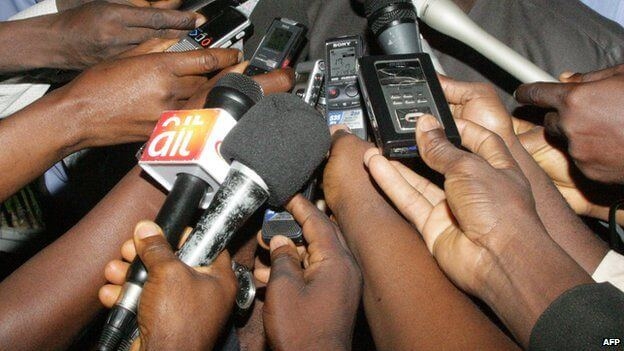
The specter of the poor state of the average Nigerian journalists, albeit in most parts of the continent, is better exemplified by Maxwell Oditta and Comrade Chuks Ehirim. Both were not just your run-of-the-mill journalists; they had paid their dues combining over 37 years in the profession.
Oditta died on Saturday, July 22, 2016, while Chuks Ehirim passed on almost a month before, June 16. Ehirim and Oditta died in penury and avoidable deaths if the necessary finances were available for required medication.
But sadly, both died being owed several months of unpaid wages. For Oditta, his former employer’s, Newswatch Daily, where he was the Politics Editor, was indebted to him for 10 months. On the other hand, Ehirim, who was the immediate past chairman of the Nigeria Union of Journalists, Abuja Council, had not been paid by Niche Communications, publishers of The Niche On Sunday, where he was its Abuja Bureau Chief, for over 15 months.
Advertisement
A narrative by Johnchuks Onuanyim, a reporter with a daily newspaper, News Telegraph in Abuja on the events leading to Ehirim’s death reflects the tragedy in which most journalists face in Nigeria – poor or no wage, no incentive to resist graft and undue pressure.
According to Onuanyim, the night preceding Ehirim’s passage to the great beyond, it was a battle to raise N30, 000 (about $70). “When we got to the hospital he was admitted immediately under emergency. We were asked to make deposit of N30, 000 after obtaining hospital card. None of us had any money, what I did was to send text messages to those who are in politics and knew Chuks.
“One of such persons the text went to replied and asked where I was and I replied back to him and said at the hospital. He asked me to come to a particular hotel and I went with Jude and he gave me N15, 000 in his room and I came back and gave it to Jude. While we were at the hotel, Chuks wife was calling Jude severally to complain that the hospital was asking for the deposit. As we got back to the hospital, we were told that a relation of Chuks brought N4, 000.”
It was no different for Oditta as recounted by his one-time colleague and friend, Gbenga Dan Asabe, publisher of Asabeafrika blog. Asabe notes that Oditta worked himself to the bones despite his having not been paid for 12 months prior to his disengagement from the Newstwatch Times newspaper owned by billionaire businessman, Jimoh Ibrahim. With nothing to fall back on, Oditta became increasingly pressured and developed high blood pressure and collapsed that fateful morning never to recover again.
Advertisement
Asabe aptly captures the dilemma of the journalists in most employ in Nigeria. “Now, late Maxwell Oditta’s dilemma is the dilemma of majority of Nigerian journalists who work hard for non-journalist elites who employ them and slave them to death. Many of this people are aged, with different ailments battling their old age. They get nicely written letters of employment from shabby minded fellows who masquerade as Harvard or Oxford trained business specialists. It is only when this poor journalists sink into the passion of their new job that they discovered that they have just been skewed into a new slave trade where posh offices, nice looking air condition units, flashy computer desks and many articles of work are offered the “slave” on a platter of trick.”
Except for a handful of media outfits that pay their journalists’ passable wages, others hold onto the skewed message that the identity card is a meal ticket. As a result of this dangerous assumptions, very few journalists can resist the temptation to cut corners, and bend to unscrupulous businessmen, twisted and crooked politicians and corrupt civil servants.
The end result is that the fulcrums of accountability, credibility, transparency and rule of law on which every democratic society rests on, are mortgaged on the altar of survival fueled by poor working conditions.
Over the years, the Nigeria Union of Journalists, the umbrella body of journalists in the country, has made feeble attempts to get the media owners to pay journalists in their employ, but most times fall short of any real action. The reason is not far-fetched; the media owners are either powerful politicians or allied to the ruling elite.
With no strong constitutional guarantees protecting the journalists, quality journalism faces certain death as the dearth of conscientious and economically secured journalists are on the decline in Nigeria.


